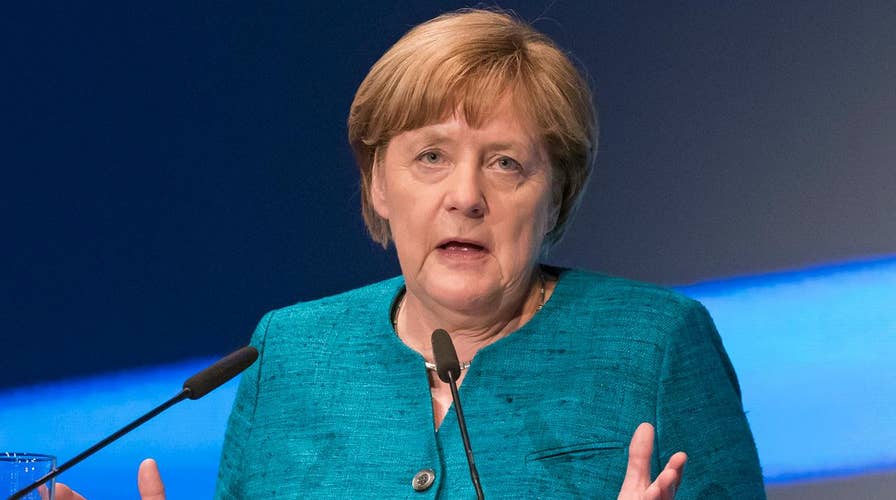German Chancellor Merkel suggests Europe cannot rely on US
Rich Edson explains on 'Special Report'
During his recent trip overseas, President Trump stood before dozens of Arab and Muslim leaders and announced: “Our friends will never question our support, and our enemies will never doubt our determination.”
Unfortunately, the president’s stated commitment to our allies was short-lived and selective.
Just a few days later, President Trump held a series of disastrous encounters with our NATO partners – nations who are among our closest and most important allies in the world – and left them with the impression that the United States could no longer be trusted to stand by their side in confronting shared threats like Russian aggression.
President Trump very noticeably declined to voice his support for NATO’s cornerstone principle of collective defense – a disturbing reminder of his campaign rhetoric calling NATO obsolete.
Republicans spent the last eight years slamming President Obama for what they said was a disregard for our allies, including in Europe.
Trump’s public remarks to the NATO leaders at a ceremony marking the terrorist attacks of 9/11 were tone-deaf and rude – a sharp contrast to the deference he showed in Saudi Arabia when he said, “We are not here to lecture.” He berated and lectured the European leaders, failing even to mention their countries’ significant military commitments and sacrifices in our war in Afghanistan.
But the real train wrecks appear to have come during his private discussions with the NATO members, where the president’s positions on everything from climate change and trade to immigration and defense opened the biggest rift in our alliance since the Iraq War.
The most troubling sign of these tensions came when German chancellor Angela Merkel – normally a staid, publicly-cautious leader – declared after their meetings that Europe now “really must take our fate into our own hands.”
This isolation from our European allies matters, and not just because we want other countries to like us.
NATO came of age during the Cold War, when we stood unified against the Soviet Union. Today’s leadership in Moscow still views NATO as an adversary to be countered and weakened. There are few developments that Russian President Vladimir Putin desires more than divisions between the US and Europe – which Russia would almost certainly take advantage of to become even more aggressive.
This would lead to less freedom for our friends across Europe, because they will have to contend with increased Russian attacks on democratic institutions you can see – like in Ukraine – and ones you can’t – like the recent election-related hacking in France.
President Trump, wittingly or not, brought Putin closer to his goal.
Today, we take for granted that Europe hasn’t fought a world war since 1945, but that peace did not happen by accident. It came about because of focused work by leaders on both sides of the Atlantic to build up NATO as the cornerstone of post-war security for the West. Without a shared commitment to those common values and ideals, the prospects for serious European conflict rise – and our ability to address shared challenges falls.
The difference in how the president lectured our Europeans friends about their immigration policies and terrorism but refused to speak out in Saudi Arabia about its long-time support for radical strains of Islam was stunning.
Whether it’s because of his soft spot for strongmen or his preference for leaders who don’t challenge him, the president’s behavior on this trip painted a dark and dangerous portrait of how he sees the world.
The US is not strong when we’re isolated. We are weaker when we go it alone, because as powerful as we are, we cannot solve the world’s challenges by ourselves.
Republicans spent the last eight years slamming President Obama for what they said was a disregard for our allies, including in Europe. Perhaps the most depressing thing of all is that so many of those same Republicans are silent now, or, worse, are praising the president’s destructive actions. They will bear much of the blame when Russia pushes further into Europe, or when we have fewer friends left to call on when we need them the most.

